BBC Sky at Night Magazine - August 2024

BBC Sky at Night Magazine - August 2024

Go Unlimited with Magzter GOLD
Read BBC Sky at Night Magazine along with 9,000+ other magazines & newspapers with just one subscription View catalog
1 Month $9.99
1 Year$99.99 $49.99
$4/month
Subscribe only to BBC Sky at Night Magazine
1 Year$95.88 $34.99
Buy this issue $7.99
In this issue
The world’s biggest camera
We get the lowdown on an ultrapowerful astro imaging system.
Particle physics 101
Getting to grips with antimatter, and why it matters…
Flying over Titan
NASA is sending an octocopter to explore Saturn’s largest moon...
Could We Find Aliens by Looking for Their Solar Panels?- Designed to reflect ultraviolet and infrared, the panels have a unique fingerprint
Researchers searching for life beyond Earth spend a lot of time thinking about what telltale signs might be detectable astronomically. Forms of unambiguous evidence for the presence of life on another world are known as biosignatures. By extension, techno signatures are indicators of activity by intelligent, civilisation-building life.

2 mins
Where Have All The Milky Way's Early Stars Gone?- Our Galaxy has a curious lack of pristine stars
The Big Bang produced a Universe filled almost exclusively with hydrogen and helium; all other elements - what astronomers call metals - were produced by stars, supernovae and everything that happens later. So if you can pick out a pristine star with no metals polluting it from among the billions in the Milky Way, then you are likely to have a star dating from our Galaxy's earliest days.
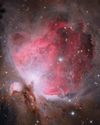
2 mins
Inside The Sky At Night - Two years ago, exoplanet scientist Hannah Wakeford received some of the first data from the JWST
Two years ago, exoplanet scientist Hannah Wakeford received some of the first data from the JWST. In July's Sky at Night, we discovered what she's learned since then.
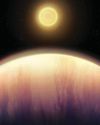
2 mins
Once-a-century solar storm is overdue
If a Carrington Event struck today it would be catastrophic, says Minna Palmroth
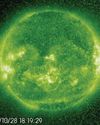
2 mins
Shooting the dark Universe with THE WORLD'S BIGGEST CAMERA
Janie Carter reports _ from the Vera Rubin Observatory in Chile, where the largest camera ever built will soon start shooting the ultimate space movie: an ultra-wide, ultrahigh-definition record of the southern sky

7 mins
Has Webb broken cosmology?
Caroline Harper

7 mins
Antimatter- In our continuing series, Govert Schilling looks at antimatter, the strange counterpart to most of the matter filling our Universe
Particles and corresponding antiparticles are very much alike, except they have opposite electrical charges. For instance, the antiparticle of the electron - known as the positron - has the same tiny mass, but while electrons carry a negative electrical charge, positrons are positively charged.

4 mins
Flying over TITAN
Ezzy Pearson reports on NASA's Dragonfly, the first-ever science mission to fly on another world, which is set to soar over Saturn's largest moon in search of the elements of life

8 mins
The new era of human spaceflight
There's been a step-change in crewed space missions since the dawn of the 21st century. Ben Evans charts its course and looks ahead to future horizons

9 mins
Smartphone photography with a telescope
Mary Mcintyre explains how to get impressive night-sky images using your phone
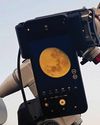
2 mins
How to plot a variable star light curve
A rewarding project to chart stars that change brightness
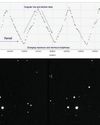
2 mins
Lunar occultation of Saturn
You'll need to strike a balance on 21 August to capture the Moon covering the ringed planet
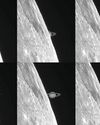
2 mins
BBC Sky at Night Magazine Description:
Publisher: Our Media Ltd
Category: Science
Language: English
Frequency: Monthly
Complementing the much-loved BBC television programme, Sky at Night Magazine is your practical guide to astronomy. Each issue features columns by renowned experts such as Sir Patrick Moore as well as in-depth cosmological features, practical observing tutorials, comprehensive equipment reviews, astrophotography master classes and much, much more. And with easy-to follow star charts and expert advice on how to get the most out of the observing month, Sky at Night Magazine is essential reading for both the novice and experienced astronomer.
 Cancel Anytime [ No Commitments ]
Cancel Anytime [ No Commitments ] Digital Only
Digital Only